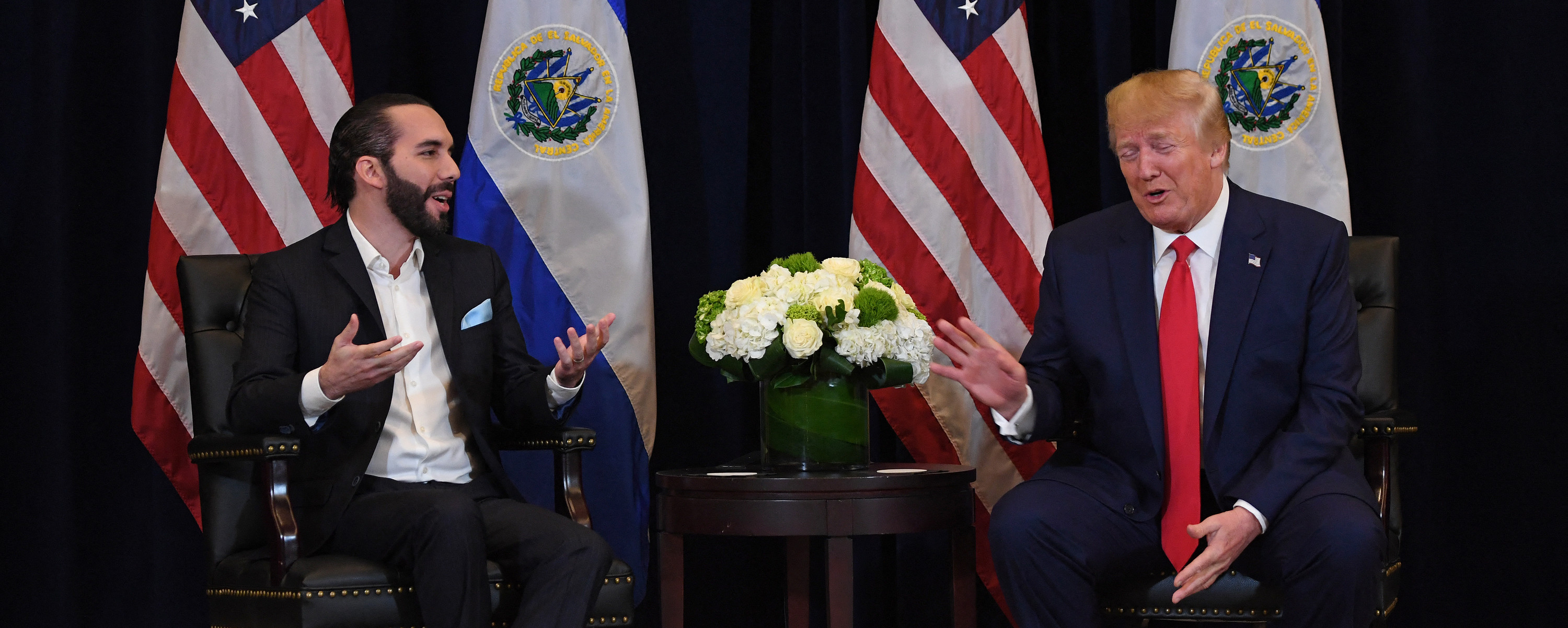The relationship between former U.S. President Donald Trump and El Salvador’s authoritarian leader, Nayib Bukele, is often mischaracterized as a friendship — or, as some claim, a “bromance.” But this is a dangerous illusion. True partnerships between nations involve mutual benefit, yet under Trump’s “America First” doctrine, El Salvador has become a subservient pawn, not an equal ally, as the freezing of almost all U.S. aid to El Salvador proves.
During Secretary of State Marco Rubio’s visit to San Salvador on Feb. 5, 2025, Bukele did more than just accept, without conditions, the mass deportation of thousands of Salvadorans from the United States. He also agreed to accept deportees from third countries — essentially turning El Salvador into an offloading zone for Washington’s unwanted migrants. Even Guatemala’s President Bernardo Arévalo, also under U.S. pressure, signed onto similar terms. But Bukele went even further: He volunteered his country as a holding pen for foreigners whom the U.S. deems to have ties to organized crime, as well as U.S. American citizens convicted in the country’s own courts — all in exchange for what Trump described as a “small fee.”
This is a stunning move from a leader who has spent years branding El Salvador as Central America’s rising tech hub and a top-tier tourist destination. How does a man who boasts about defeating gangs and modernizing his nation suddenly agree to turn it into a U.S. gulag? The answer is simple: survival.
Bukele is desperate to close a dangerous vulnerability in his relationship with the United States: his secret dealings with Salvadoran gangs. In 2021, U.S. officials accused him of negotiating a truce with El Salvador’s infamous gangs, offering them prison benefits in exchange for a drop in homicides. When Joe Biden was president, Bukele dismissed these allegations as a smear campaign, even invoking George Soros as a villainous puppet master. But with Trump back in the equation, that excuse is gone. During his presidential campaign, Trump accused Bukele of sending gang leaders to the United States, a claim bolstered by investigative reports that revealed Bukele’s government had helped a high-profile gang boss, Élmer Canales Rivera (alias “Crook”), escape — only for him to be later transferred from Mexico to U.S. custody. That attack thrilled Bukele’s conservative critics within Trump’s orbit, who had long viewed the Salvadoran leader with suspicion.
Now, Bukele is scrambling to regain favor with the man who just returned to the White House. In just two years, Bukele’s government has pivoted from demanding that the international community take gang leaders off El Salvador’s hands to now, through his U.S. ambassador Milena Mayorga, lobbying for their return.
Bukele knows the ongoing trial of Canales and other gang leaders in New York could expose new, damning details about his administration’s dealings with the gangs. The case is being handled by a prosecutor with deep ties to Trump’s first-term anti-gang initiatives. With the potential for explosive revelations, Bukele’s fear is palpable. His solution? Total submission.
Rather than admiration, Bukele’s government appears to be terrified of Trump. Salvadoran diplomats understand the transactional and nativist nature of Trump’s foreign policy, where ideological loyalties mean little. If Trump is willing to negotiate with Venezuelan dictator Nicolás Maduro behind Rubio’s back, he won’t hesitate to throw Bukele under the bus if it serves his political interests.
Bukele is willing to destroy the legacy of his own government just to secure Trump’s favor. His survival strategy isn’t about making El Salvador a premier tourist destination, reviving its economy with cryptocurrency, or crafting the image of a modern, forward-thinking leader. Instead, he’s betting that the only power that can truly hurt him resides in Washington, not among his own people. There is no friendship, no “bromance” — only desperation.
Ricardo Valencia is an associate professor of communications at California State University, Fullerton. Find him on X: @ricardovalp

